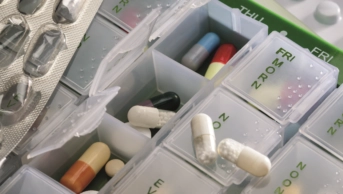
Thomas Nugent / Wikimedia Commons
A lack of awareness about reporting systems for adverse drug reactions (ADRs) and confusion about how they work are preventing patients from informing medicines safety regulators when something goes wrong, according to research published in the British Journal of Clinical Pharmacology
[1]
.
However, patients who do log a report say preventing other patients from having a similar experience and improving medicines safety and health care professional practice are amongst the reasons why they take action.
The findings follow a systematic review of 21 studies published between 2008 and 2014 that consider patient barriers to reporting ADRs, their perceptions of the current reporting systems and the factors which influence whether they make an official report.
“By increasing patient familiarity and providing clear reporting processes, reporting systems could better achieve patients reporting of adverse drug reactions,” the researchers say.
The Medicines and Healthcare products Regulatory Agency (MHRA), the UK’s medicines safety regulator, agrees that some patients are deterred from reporting ADRs through its official Yellow Card system.
But the MHRA says it is committed to making the Yellow Card scheme as easy and accessible as possible for patents.
“We want also to make sure that people know why it’s important to report an adverse drug reaction — the most important message is that reporting an adverse drug reaction makes medicines safe for other people,” a spokesperson says.
References
[1] Al Dweik R, Stacey D, Kohen D et al. Factors affecting patients reporting of adverse drug reactions: a systematic review. British Journal of Clinical Pharmacology. doi: 10.1111/bcp.13159


